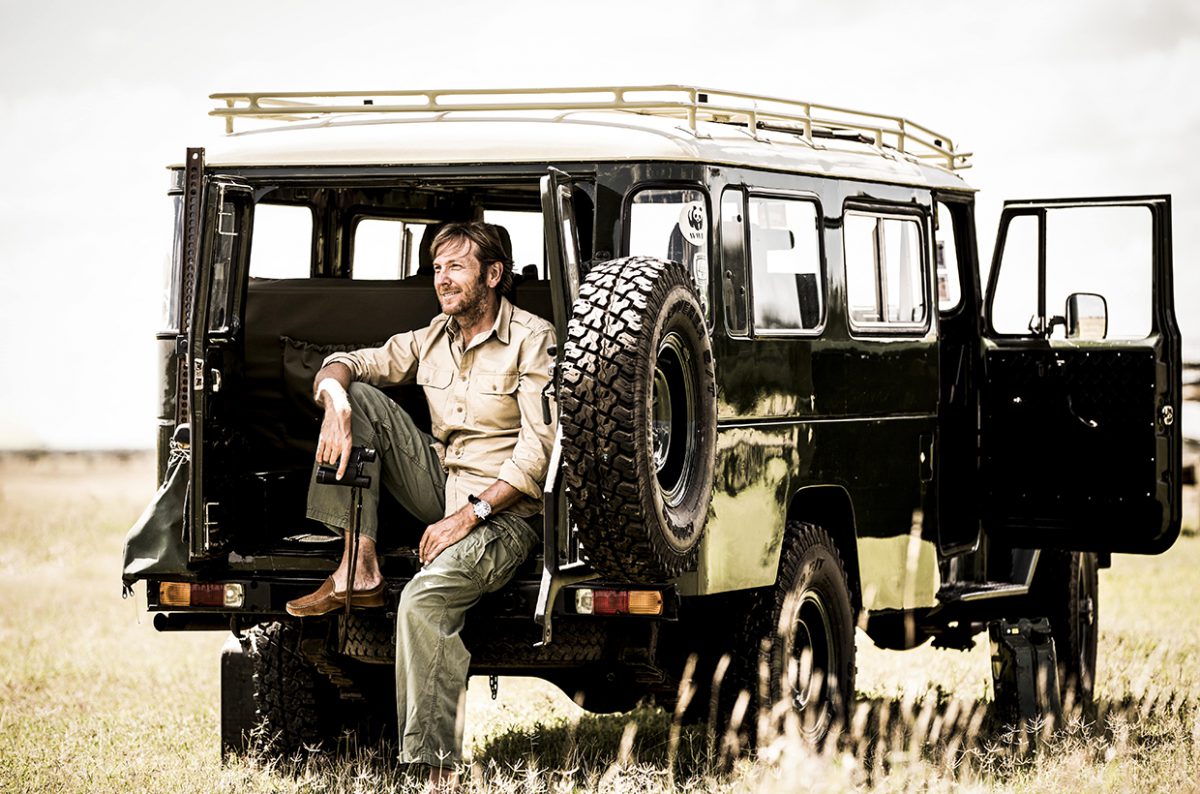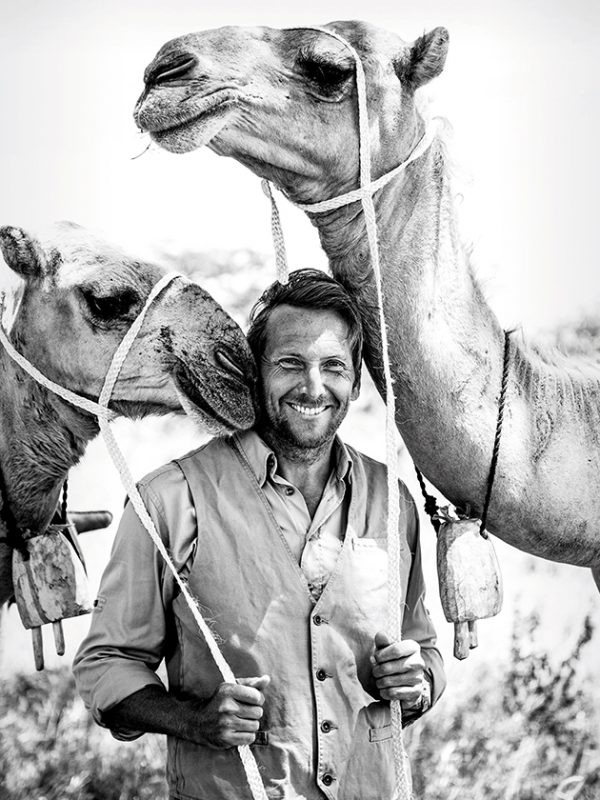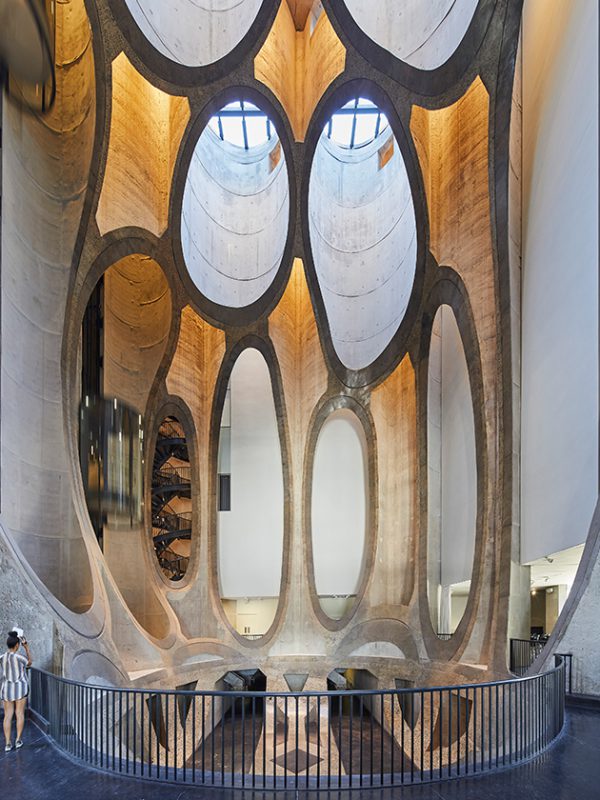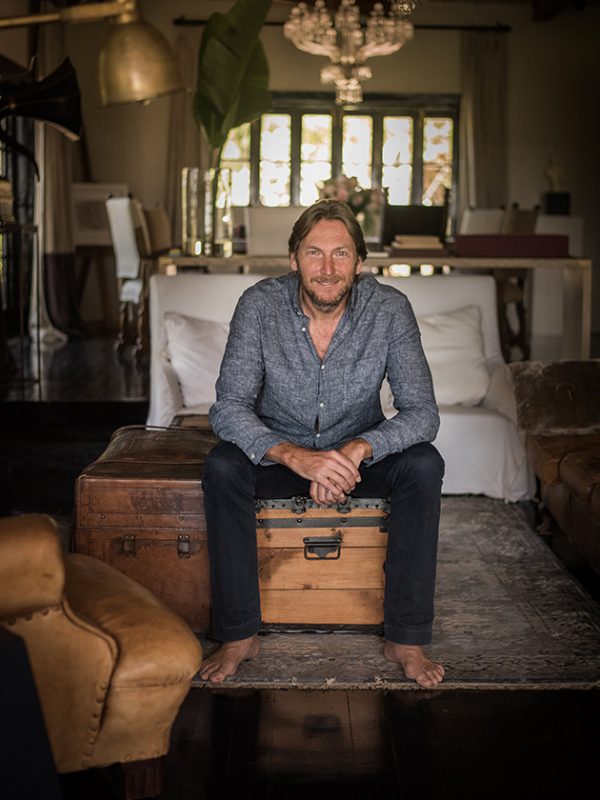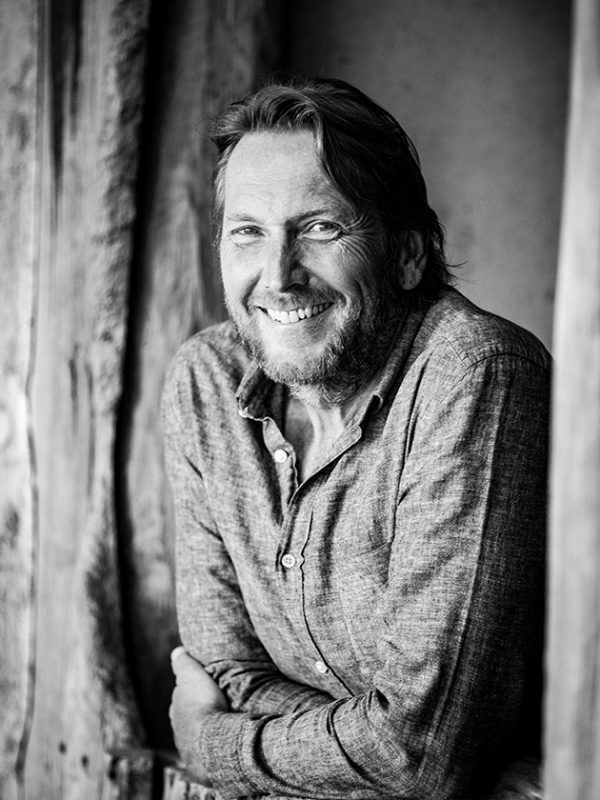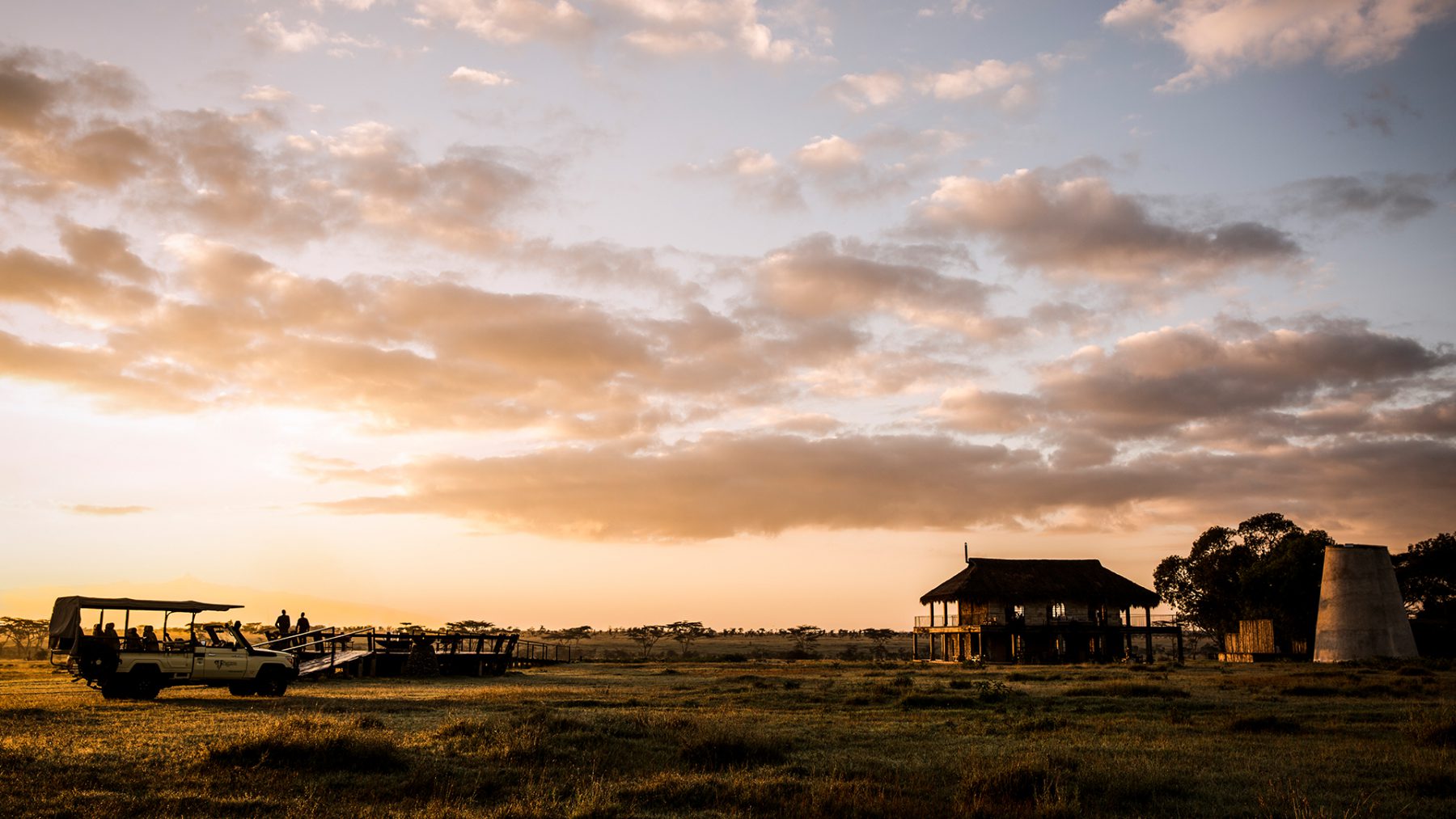Jochen Zeitz by Steffi Kammerer | 5th March, 2021 | Personalities
Jochen Zeitz is a master of reinvention. After revitalizing the Puma brand, he pursued his love of Africa and opened a museum and an eco-retreat. His next move: joining Harley-Davidson as new CEO.
A chance encounter can sometimes change your life. If not immediately, then perhaps later. Timing is crucial. When Jochen Zeitz, then CEO of Puma, met Benedictine monk Anselm Grün, the timing was just right. Zeitz had achieved everything he could as a businessman. He was Germany’s highest paid executive earning nearly ten million euros a year, but for quite a while, had been plagued by questions that went far beyond his account balance.
They met in the summer of 2008 during a panel discussion at the Nuremberg press club. One was a monk, dressed in the habit of his order; the other was a top executive of a global company. It wasn’t long before they discovered that they shared the same values and similar interests. The friar invited Zeitz to spend a week at his monastery, and the CEO of Puma took him up on the offer, joining the monks for morning prayers at 4:30 am. The two men’s conversations were soon turned into a book entitled The Manager and the Monk: A Discourse on Prayer, Profit and Principles, which was published in 2010. Not long afterwards, the manager made some drastic changes to his life: He left the top job at Puma he had held for 17 years, and divorced his wife of 18 years. This radical departure cannot be ascribed to Zeitz’s encounter with the monk alone, but it helped him on his way.
Jochen Zeitz was born in Mannheim, Germany, in 1963. Both his parents were doctors, as were their parents before them, going all the way back to the 16th century. Zeitz also started off studying medicine. But then came the first of many changes of direction: He dropped medicine and took up economics, after which he followed an unswerving path, always in the fast lane. Zeitz learned the ins and outs of marketing at Colgate-Palmolive in New York. In 1993, not yet 30, he took over at Bavarian sportswear manufacturer Puma. The company was anything but a luxury brand back then: nearly bankrupt, its image battered. But Zeitz was up for the challenge. He wasn’t apprehensive and had never been one to lack confidence.
Never before had a German publicly traded company appointed such a young CEO. The Financial Times mocked him as being “just out of kindergarten,” but the criticisms soon subsided. Zeitz turned the ailing company around and two-digit annual growth figures became the norm. Then Puma started breaking records, one after the next. When rappers turned sneakers into fashion statements, Zeitz was one of the first to recognize the trend and turned the company into a global lifestyle brand. Madonna, Brad Pitt and Leonardo DiCaprio were soon seen sporting Puma sneakers. Alexander McQueen and Jil Sander designed collections for Zeitz.
Just like his fantastic career, Zeitz’s private life appeared to be in excellent shape. When he wasn’t jetting around the world, he and his wife Birgit lived a quiet, secluded life in Nuremberg. There are no photos of the two of them together from those years, no tabloid headlines. Zeitz didn’t appear on talk shows, either, but his financial results were exemplary. Increasingly, Jochen Zeitz began to concern himself with more universal subjects. In 2010, he had an environmental report drawn up for Puma, an unsparing analysis and the first to be published by any major company. The result was sobering: Puma’s global environmental impact came to 145 million euros. “It’s time to change our business model,” Zeitz concluded, and pledged to pay more attention to sustainable manufacturing.
He considers himself an amateur psychologist, has read Kant, Freud, Schopenhauer, Confucius and Sartre, and has studied the arts of Zen masters and shamans. At some point Zeitz realized that he no longer wanted to sell sneakers, but rather save the planet and turn genuine visions into reality. After he left Puma, he was appointed Chief Sustainability Officer at Paris-based luxury goods group PPR, now Kering. But deep inside, he felt drawn to Africa, a continent that had fascinated him for many years. Soon he began spending half his time there.
In 2005, he acquired 200 square kilometers of land on the Laikipia Plateau in Kenya – an area the size of the island of Manhattan, just a 45-minute flight from the capital, Nairobi. There, he built a luxurious eco-lodge, the Segera Retreat: eight wooden pavilions on stilts with an unparalleled view of the savanna. At night, guests get to listen to roaring lions and laughing hyenas, while during the day, herds of elephants, buffaloes, leopards, zebras und gazelles pass by in front of their lounge chairs. Zeitz designed his African dream down to the last detail. Old letters and photos of Hemingway adorn the walls, and the famous biplane from the movie Out of Africa is there, too: Zeitz bought it at auction, restored it and now flies it around the estate. Naturally, a man like him has a pilot’s license. Zeitz greets his employees in their native Swahili, which he taught himself with an audio language course. He speaks half a dozen other languages as well.
In 2008, Jochen Zeitz started his eponymous conservation foundation dedicated to protecting the global biosphere. Tourism plays a big part in this and Segera became the foundation’s showcase for sustainable tourism. The retreat uses solar power and has its own wastewater purification system. It welcomes travelers with deep pockets who are prepared to pay a lot of money to feel good about themselves.
Jochen Zeitz reinvented himself in his middle years. He didn’t just become a rancher but also a patron of the arts, opening a spectacular seven-floor museum in Cape Town’s harbor area – one of the world’s most important venues for contemporary African art. In 2012, he and Richard Branson founded B-Team, a non-profit organization aimed at helping top executives shift their thinking away from short-term profit and toward the more economically viable long-term goals of human well-being and the well-being of the planet.
All of this, Zeitz explained several years ago, was his “second life’s work.” He added: “Make sure you don’t spend your entire life climbing a ladder only to find that it’s leaning against the wrong wall.” He has also changed his physical appearance, wearing his hair longer and sporting a beard and sideburns. Zeitz is now married to a British film producer with whom he has two small children. The two are named after the legendary American outlaws Frank and Jesse James. Zeitz is a huge fan of Wild West lore and an adventurer at heart.
Many thought that he had left the corporate world for good, but then he was approached by Harley-Davidson, the Milwaukee-based motorcycle manufacturer. Zeitz joined its board of directors in 2007. In 2015, sales figures started slipping. Young people in particular were no longer interested in Harleys, which had lost the allure they had acquired when Peter Fonda immortalized them in Easy Rider. The bikes were seen as noisy, expensive, out-of-date gas guzzlers.
Last February, when the company’s longtime CEO stepped down, it was announced that Zeitz would replace him, but only temporarily. Three months later, he was officially made President and CEO of Harley-Davidson. The daunting task facing the European executive was to rescue the traditional American brand and secure its future by attracting millennials and making motorcycles cool again – primarily through good ideas and convincing storytelling. No one was better suited for the job than Zeitz, thanks to his remarkable life story.
He’s free, makes his own rules and isn’t tied to an office.
In one important way, Zeitz fits the Harley-Davidson image extraordinarily well: He is enviably free. Back in the day, he was regarded as Mr. Puma, but today, he’s just himself: Jochen Zeitz, a man who makes and lives by his own rules. A glance at his Instagram account shows that although he has nominally returned to life in the corridors of corporate power, he is still very much free to decide where he wants to be. Sometimes, he and his family can be found in Kenya, at other times on his ranch in Santa Fe, New Mexico. In between, he makes pitstops in Milwaukee, but in an interview ten years ago, Zeitz had already made himself abundantly clear: “I’m a virtual worker. I’m not tied to an office.”
At the same time, Zeitz is renowned for his micromanagement. At Puma, it has been reported, he insisted that all employees’ travel expenses be agreed by him personally. And when he sets his heart on something, he always follows through. During his time on the board of Harley-Davidson, he established the Brand and Sustainability Committee in 2011. Although the LiveWire, Harley-Davidson’s first ever electric bike, was launched by his predecessor in September 2019, Zeitz was very much involved in its development. Under his leadership, the Milwaukee-based company came up with an entirely new definition of freedom – the freedom to ride a motorcycle in a healthy natural environment. “We believe that electric motorcycles will play an important role in the future of Harley-Davidson,” says Zeitz.
So far, the new Harley-Davison CEO has cut 700 jobs and has streamlined decision-making processes and general operations to improve efficiency. And he seems very confident that he’s on the right track. The day after he was appointed CEO, Jochen Zeitz bought Harley-Davison shares worth more than two million dollars.
